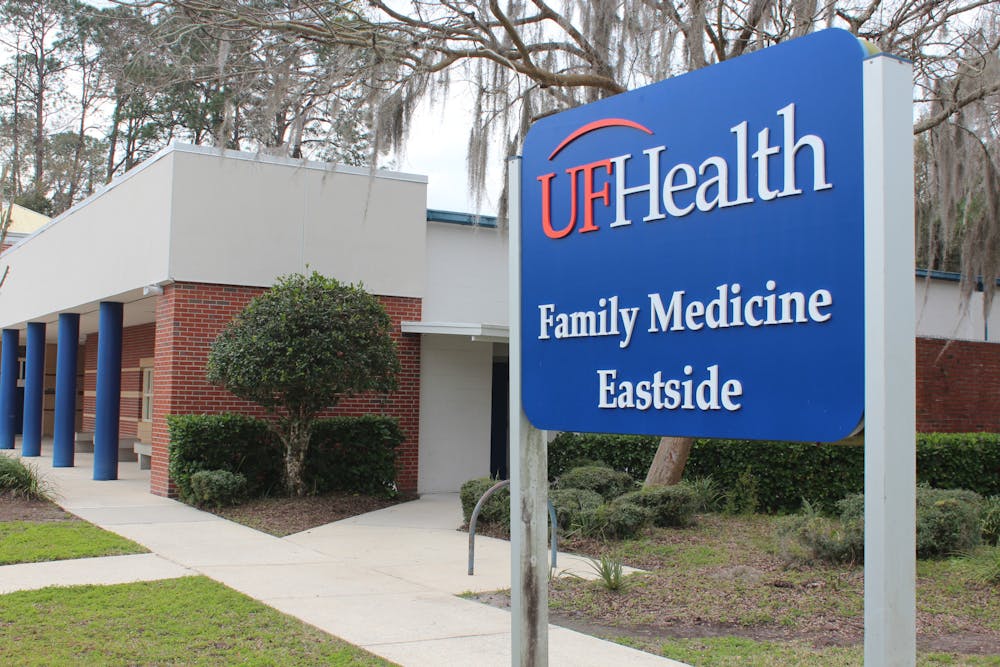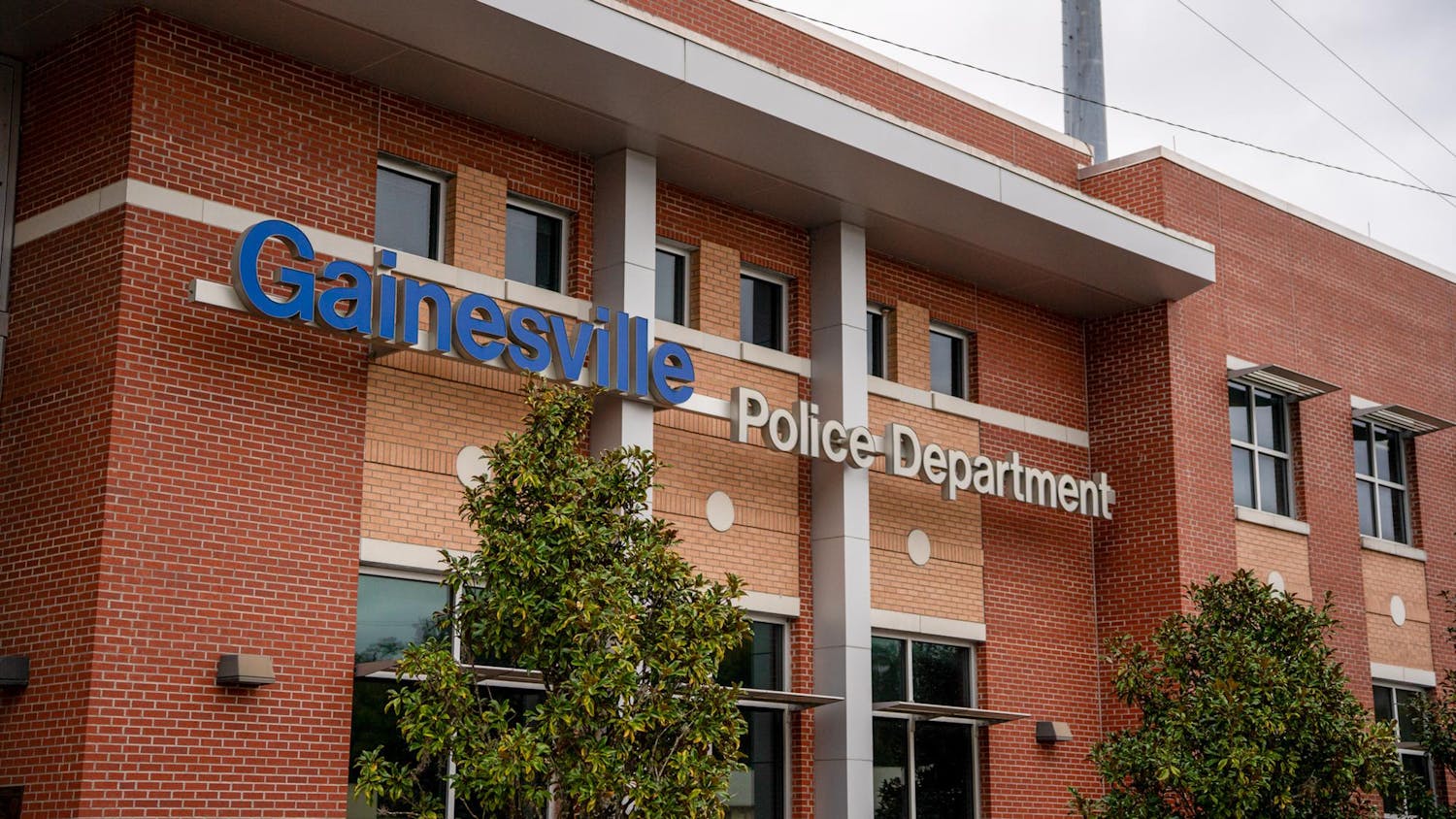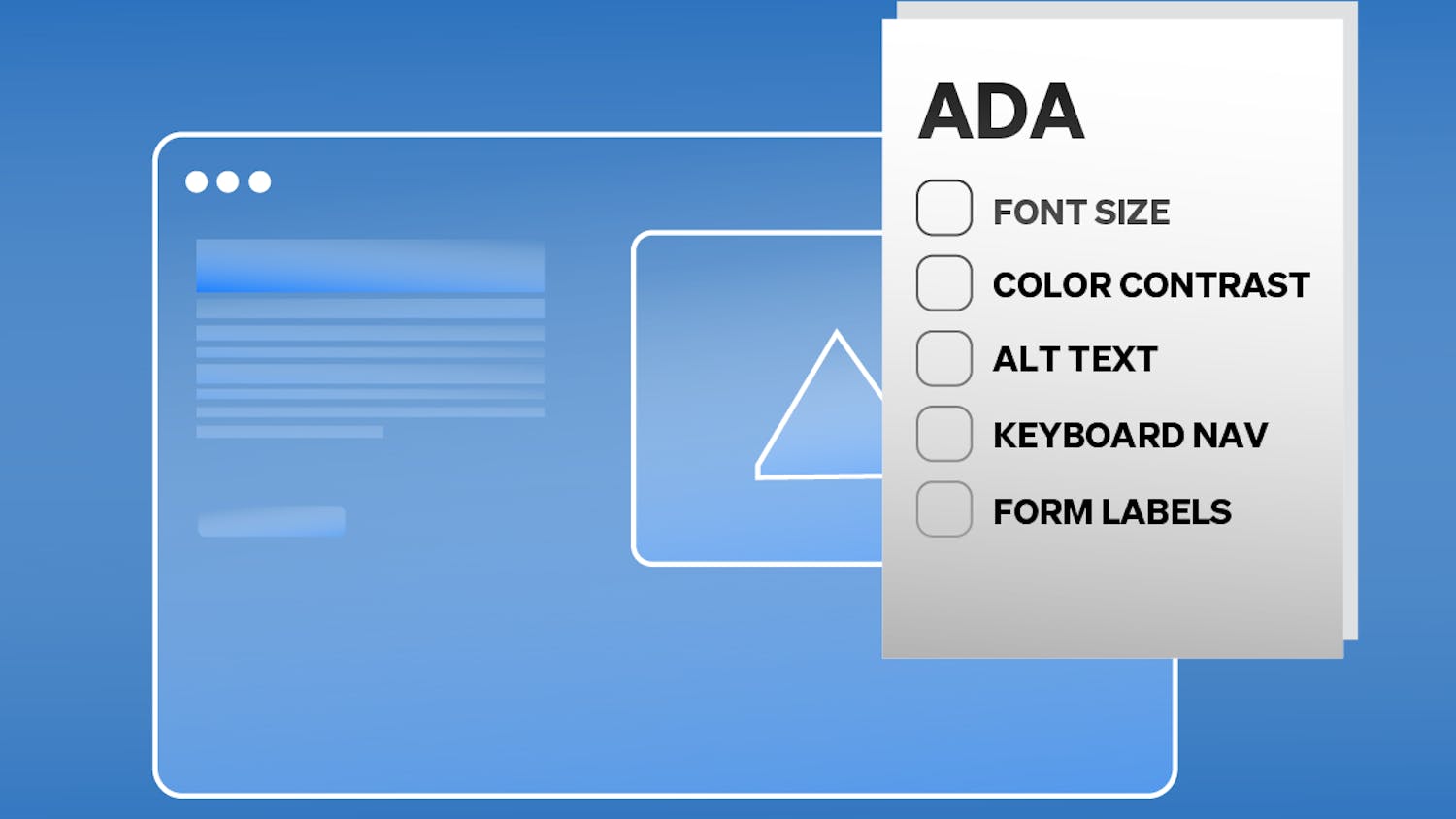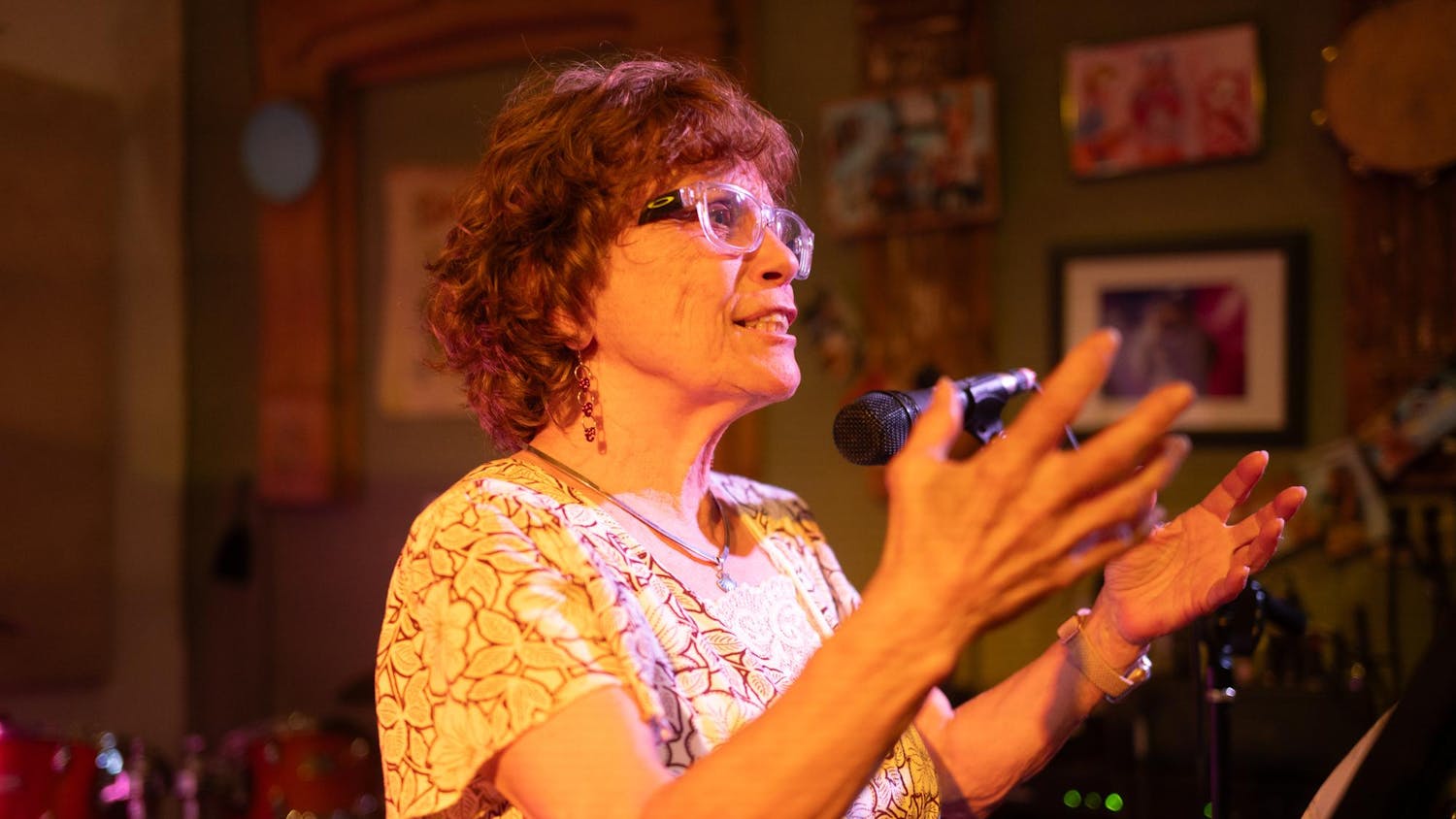Lakesha Butler has worked at UF for just a year and a half. But she’s been tackling Gainesville health disparities since her first day on the job.
Most recently, the UF Health chief culture officer, formerly the chief diversity officer, won a $500,000 grant from the Florida Blue Foundation to combat food and health insecurity in East Gainesville.
Butler’s team will use the grant in three ways: to create a mobile food pharmacy delivering healthy groceries throughout East Gainesville, to work with Uber Health to bring people to appointments and to train more students as interpreters.
“As we are training our students, we want them to be able to see the whole patient,” she said. “If I'm asking them to be more physically active, maybe they don't have sidewalks to be physically active. When they don’t come to their appointments when scheduled, maybe there's a transportation barrier.”
East Gainesville residents have historically lacked access to resources abundant on the west side of the city surrounding the university. The predominantly Black area faces higher poverty and lower health insurance rates than the other side of Main Street.
Butler submitted the application in September, and UF announced she won the grant Feb. 12. Her team’s next steps include buying a van or truck, finding faculty to oversee health students throughout the process and looking into food supply, she said.
Food on the move
The idea for the program started with data, Butler said.
The most recent Community Health Needs Assessment showed zip codes from East Gainesville fall in some of the highest food insecurity percentiles in the state and have high rates of cardiovascular-related deaths, Butler said.
With a mobile food pharmacy, UF health providers can “set up shop” in various parts of East Gainesville. There, physicians will prescribe foods to patients based on their medical needs, Butler said. For example, a provider might recommend low-carb groceries to a diabetic patient.
By putting the food pharmacy on wheels, Butler hopes to help patients even after they leave UF Health facilities. Instead of sending East Gainesville residents back into the food desert that caused their diseases, the new model will look at patients as “whole people,” she said.
“It’s both a tall task but very exciting,” she said, “to know that this will impact the community in a very positive manner.”
Some aid programs for Gainesville’s Black community have been criticized for lack of resident input. The Bright Community Trust housing project, a Habitat for Humanity collaboration with a stated goal of building affordable housing in the historic Porters Quarters neighborhood, notified only one homeowner of the construction now taking place in their backyards.
By contrast, UF Health hosts quarterly community meetings at Lincoln Middle School, where Butler and other leaders can update residents on their services and listen to how those services can be tailored to community needs, she said.
Delphine Jackson, a 75-year-old Gainesville resident, said she’s happy to see any services UF Health can provide for the East Gainesville community.
During her 40 years as a member and leader in Greater Bethel African Methodist Episcopal Church, Jackson has seen UF Health partner with the church to fight Black health disparities in areas from cancer support to mental health, she said.
Partnering with UF Health is just one way the church fights food insecurity in its community, Jackson said. GBAME also runs its own aid programs, like monthly food giveaways that serve 80 families per month out of a makeshift drive-thru from the building’s front walkway.
“The church is supposed to be like a hospital, where we reach out to the lost,” she said. “We know there’s a need, so we try to fulfill that need.”
Translators and transport: Identifying clinics’ needs
UF Health already stretches past its West Gainesville zip code to serve East Gainesville residents through the Equal Access Clinic, a student-run clinic network with both mobile and permanent locations throughout the city.
Equal Access Clinic will now be a hub for the new programs.
Olivia Packham, a 20-year-old UF health science junior, is excited not just about the mobile food pharmacy but also other facets of the grant — especially its stipulation to train more students as medical translators, she said.
The two-year Eastside clinic volunteer said her clinic often has just one bilingual student on staff per night, who must run between patient rooms to serve a large number of Spanish-speaking patients.
Packham also looks forward to the extended Uber Health coverage, whose benefits she thinks the clinic will see “right away.” With the organization’s current cost restrictions, it can’t pay for transportation for someone who lives more than 10 miles or 20 minutes from the clinic, she said.
Working at Eastside has been an “eye-opening” experience for Packham, who grew up in a financially stable home and didn’t have to worry about access to healthcare. The 10-minute drive from her apartment to the clinic brought her out of her UF bubble, she said.
Packham hopes to be a doctor one day, and she’s glad Equal Access has given her hands-on experience listening to and helping people with limited health resources, she said.
“If we're having a hard time understanding our patients, I can only imagine how hard it is for them to understand,” she said. “The most rewarding part is getting to know a couple of those patients’ stories and seeing their lives change in the time I’ve known them.”
Jacksonville as a blueprint
The idea for a mobile food pharmacy was inspired by a similar — but stationary — food pantry at UF Health’s Jacksonville location.
UF Health Jacksonville discovered in 2021 about 20% of Duval County residents face food insecurity, said Ross Jones, director of the UF Jacksonville Urban Health Alliance. Most of them live concentrated in the city’s urban core.
“Jacksonville is a much bigger city than Gainesville,” he said. “But when you look at our life expectancy, you can drive five minutes or five miles away, and there’s a 20-year difference in life expectancy.”
Jones had “modest expectations” for how building the pharmacy would help patients with diseases. But the results have exceeded his team’s expectations, with over 74% of patients stabilizing or lowering their blood pressure as of July 2023, he said.
Jones, a double Gator alumnus who moved back to his hometown Jacksonville after graduation, thinks building a similar program in Gainesville will be a big help for East Gainesville residents, he said.
A stationary pantry works in Duval County because the UF hospital is “dead in the middle” of Jacksonville’s urban core, said UF Jacksonville Chief Diversity Officer Ann-Marie Knight.
By contrast, Shands Hospital is an inaccessible commute for many East Gainesville residents. Neither the Shands to North Walmart or Shands to Santa Fe bus routes cross the Main Street divide. Only 10 of the 41 total Gainesville bus routes have stops in East Gainesville.
Knight chats with Lakesha Butler, her Gainesville “counterpart,” every couple of weeks to discuss how ideas like the food pantry can be adapted from Jacksonville to Gainesville, she said.
“Many hands make light work,” Knight said. “The more we can work together, the easier the work is to lift, and we can leverage the synergy of each other’s operations.”
Butler has already received great feedback and excitement about the program, she said. The project is still in its beginning stages, and she hasn’t yet identified what students or even patients will be involved, she said. But she’s determined to cover every detail “with care” moving forward.
Butler came to UF with two goals — to learn through listening and to take action along the way. Her work on this grant could see East Gainesville residents reaping the benefits of both.
Contact Zoey Thomas at zthomas@alligator.org. Follow her on X @zoeythomas39.

Zoey Thomas is a UF media production senior and the Spring 2026 editor-in-chief of The Alligator. She has previously been data editor and engagement managing editor, as well as a reporter for three semesters. She was also a intern at the Orlando Sentinel. In her sparse free time, Zoey enjoys reading a good book, going for a run or waking up her roommates with the sound of her espresso machine.






